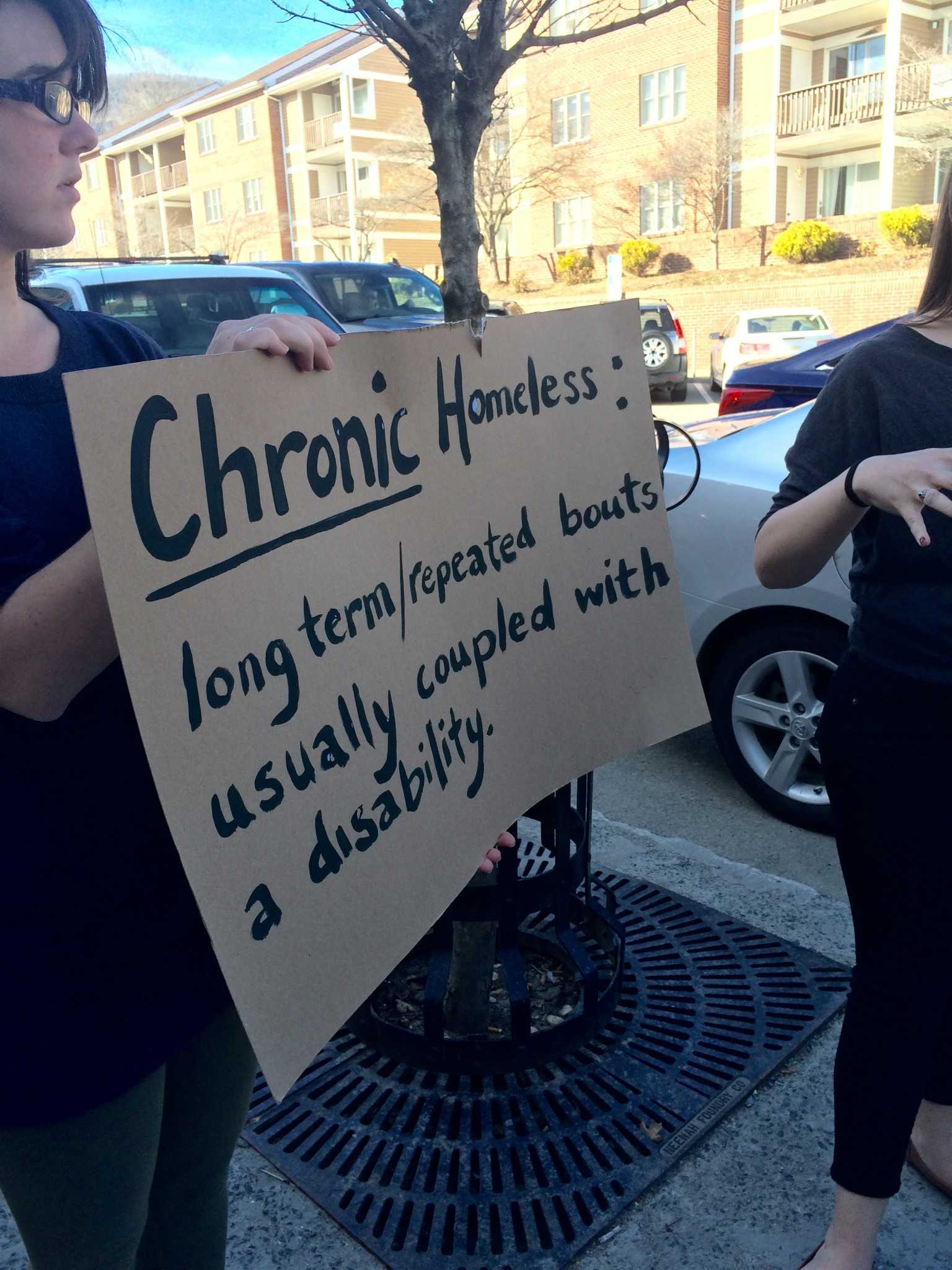3rd Place on Appalachian Street hosted an event aimed at educating students and community members about homelessness Monday night.
The event, Trying to Understand Homelessness, drew about 25 people for a walk around the town followed by speaker Mary Lyons, senior art education major.
Lyons spoke on her personal experience with homelessness, something she’s been dealing with after her mother got laid off from Wells Fargo after 20 years.
“We got a hotel for a little while, and we slept in cars and it was really rough,” Lyons said.
Lyons was initially attending a community college, but transferred to Appalachian State University, partially in order to find a place to reside. Lyons has since been having a difficult time finding aid and support from the university.
“I went to financial aid, I went to admissions, I went to housing, I went to the ombuds office, I went to every conceivable place that they direct you to go when there’s a problem and I had people say, ‘Well, we only deal with homelessness with freshmen,’ or ‘We don’t have any tools to help you,’” Lyons said. “I think a lot of people just didn’t know how to say ‘I don’t know how to deal with this, let me call someone,’ so they would just tell me whatever they had to to get me out of their office.”
Lyons said although the university was aware of her situation while in the process of transferring, the only university help she received was a waived deposit when accepting admission.
“I was on the phone with housing immediately, and transfer students are not guaranteed housing, and they wouldn’t guarantee me housing,” Lyons said. “I did wrestle my way into housing, thankfully, but that was very stressful.”
In January of 2013, there were 875 reported homeless citizens as a combined total for Watauga, Avery, Mitchell, Yancey, Ashe, Alleghany and Wilkes counties, according to statistics from the Carolina Public Press.
Mary Claire Grube, 3rd Place intern and senior religious studies major, said the event was planned in conjunction with the Hospitality House.
Grube listed the top five reasons people find themselves in a situation of homelessness with the first being no affordable housing, followed by no living wage, domestic violence, medical bankruptcy and mental illness.
While there is federal legislation that ensures stability for homeless youth, the McKinney-Vento act, the act does not apply to those of college age, thus being of no help to Lyons and others in similar situations. Lyons said legislation has been in the works to help homeless college students, but it unfortunately stalled.
The walk, centered around King Street, made several stops at signs featuring homelessness statistics regarding topics such as race, the LGBT community, substance abuse, family structures and those being released from prison.
“In 2007, 47 percent of the homeless were African American,” Grube said. “This is 47 percent out of the 12 percent of the population that is African American. Eleven percent are Hispanic, compared with the 9 percent of the population that is Hispanic.”
Grube showed distaste for the stigma surrounding the homeless that portrays the stereotypical homeless citizen as a white, alcoholic male, as statistically, it is not factual.
“One third of the homeless population in the United States are families, which again breaks down that stereotype of a white male with a scraggly beard sitting on a stoop corner ” Grube said. “A lot of times the shelter system breaks them up because its more convenient, because it’s a women’s only shelter, maybe it’s a men’s only shelter.”
Grube said Watauga County’s shelter, the Hospitality House does not have enough family units, which is something it struggles with.
Additionally, Grube noted that 40 percent of homeless teens are of the LGBT community, and could unfortunately be homeless for situations regarding abuse or getting kicked out of the home.
Michelle Dineen, an additional 3rd Place intern, said she wanted attendees to understand that homelessness can happen to anyone.
“I just hope that we spread some awareness and I hope that people feel excited about the fact that they could make a difference,” Dineen said. “I hope they learned something. Something very small can push someone into that situation and so, just, be open minded and recognize that its not an individual’s fault that they’re in that situation.”
STORY: Nicole Caporaso, Senior News Reporter

